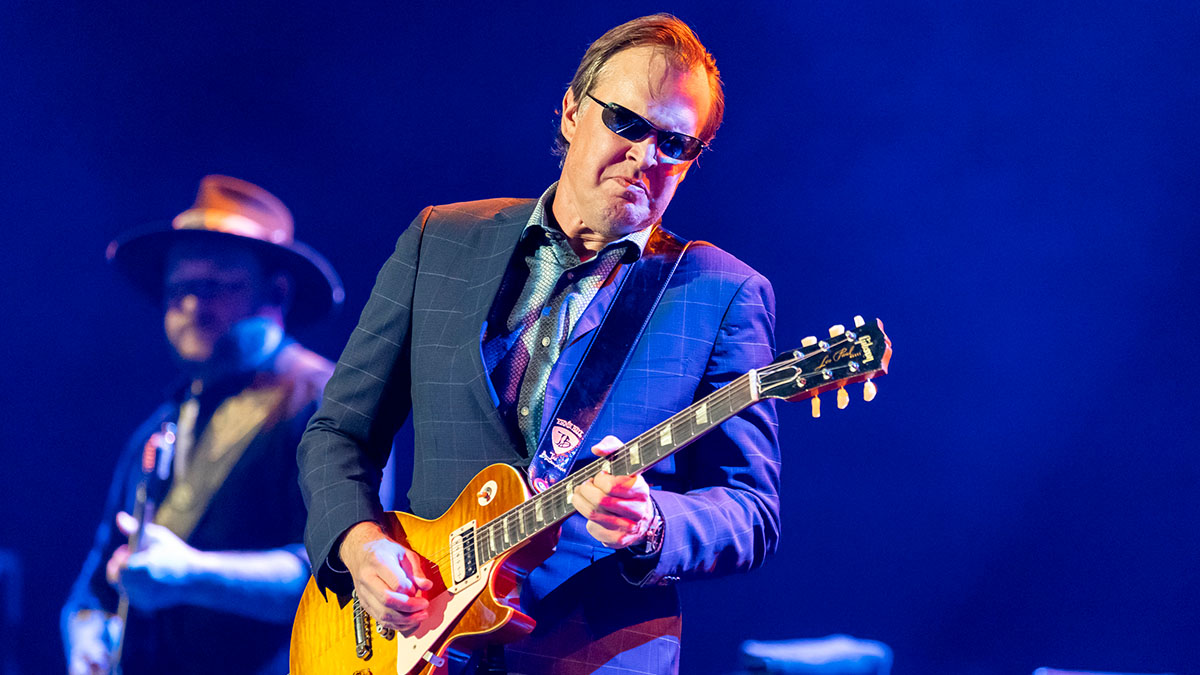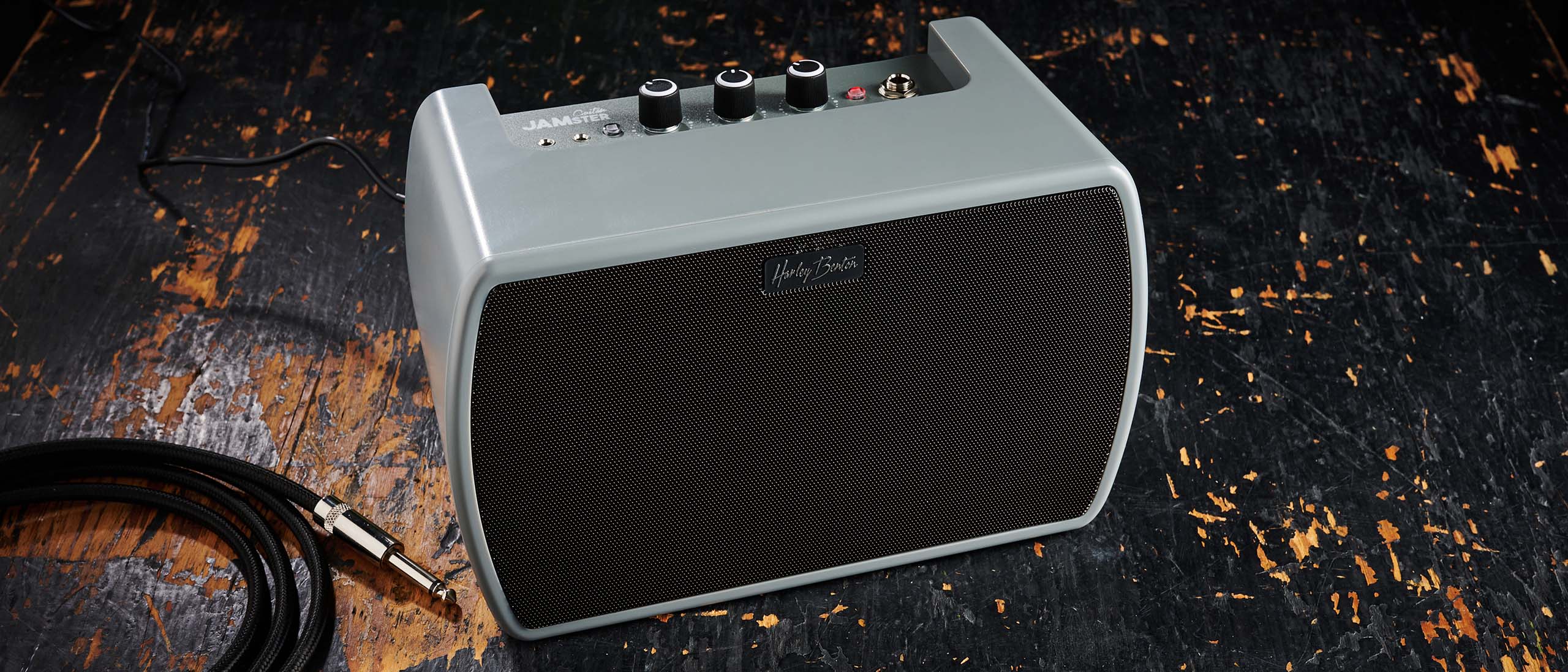“What makes a great blues player is taking on influences that aren’t blues-based”: Joe Bonamassa explains why the best guitarists always look beyond the blues
The guitar phenom offers his own definition of greatness, and reveals his 3 best guitars for blues

Joe Bonamassa has long been a modern-day pillar of the blues and all its offshoots, as he rarely adheres to one genre sector.
Bonamassa himself would tell you that his amalgamated blues is the key, which is why Total Guitar readers recently named him the third greatest blues guitarist of all time, just behind Stevie Ray Vaughan and B.B. King.
To this, Joe says, “That’s a great honour, but it’s 100 per cent not true! It’s not even 99 per cent true! That’s as definitive as the sun will fucking rise tomorrow. It’s not true, but I’ll take it. Thanks to the fans; it’s not like I was stacking the ballot box!”
In general, what are some of the key things that make for a great blues guitarist?
“What makes a great blues player is taking on influences that aren’t blues-based. It’s got to be something that’s a little bit off the main trail, you know? If you listen to some of B.B. King’s ’80s stuff, you’ll hear that he’s got some jazz in there, like from Wes Montgomery.
“He wasn’t just a straight blues player. It was the same with SRV – you can look at him and say, ‘Okay, he’s the confluence of Hendrix and Albert King’, that’s true. But there’s also bits of Ritchie Blackmore, which comes out in the tone.”
How do you apply that mindset to what you do?
Get The Pick Newsletter
All the latest guitar news, interviews, lessons, reviews, deals and more, direct to your inbox!
“I’m not here to say I’m a great player, but like I was saying, I take my influences and apply them, but I don’t become overwhelmed by them. I like to shake things up and turn them into new things. I’ve always been okay with taking influence from guitarists who may or may not be within the genre of the blues.”
I take my influences and apply them, but I don’t become overwhelmed by them. I like to shake things up and turn them into new things
Where are you primarily pulling inspiration from these days? Are you focusing on any new techniques?
“I was in the studio a few weeks ago and decided not to give my producer all the options like I used to. I’ll have something I want out of a solo and don’t want to edit it, so I don’t give him all the options. What I mean is, I won’t give him the blistering option, the slow option, and the medium option. Rather than looking at all these different angles, I’ll focus on my phrasing, what I’m trying to say, and the overall sound.”
And that’s different from how you once approached it?
“Yeah. Now, it’s about putting the right notes in the right place. We’ve established that I play guitar, and that’s the career. There’s no need to go into career-saving mode and overdo it. It’s about refining my phrasing, which I think happens to any player nearing 50.”

It’s no secret that you’re a guitar collector, but which of your guitars sings the blues best would you say?
“A Strat and a [Gibson] ES-335. To me, those are blues machines. A Strat can do so much, kinda like [how] Buddy Guy [used one]. And the 335 is like the classic instrument that a guy like Freddie King used. I’d have to include a Les Paul, too.
“The British guys, like Jeff Beck, Peter Green and Mick Taylor, took the classic Les Paul ’Bursts from ’59 and used them as weapons for the blues. Those ’Bursts plugged into a Marshall became a common denominator. So, the Strat, 335, and the Les Paul – those are the quintessential three.”
What’s the best Strat, 335, and Les Paul you’ve ever owned?
“Oh, God. The ’55 hardtail ‘Bonnie’ Strat is the best one for me. As for the 335, there’s a couple of ’62s that I play live – they’re Les Paul killers. And with Les Pauls, it depends on what I’m playing. It’s hard to name a favourite as it depends on the job. You’ve got a Goldtop with P-90s, and then there’s ’Bursts with PAFs, so it all depends.”
To this point, is there a quintessential song or performance of yours that you always go back to?
“I always hope to reach that point with each record. But even if I did reach that, I’d never be aware of it. No one will know if you’ve recorded that until you’re dead. You never know the ones that will stand the test of time, so I always keep trying. But my 2014 Red Rocks performance is probably the best performance I ever did.
“The Three Kings tour was fun, and the DVD we did at the Greek Theater [2015’s Live At The Greek Theatre] was great. I’m proud of those. But again, this me being number three stuff – thank you. I will always appreciate the accolades, but it’s 100 per cent not true!”
- Live At The Hollywood Bowl With Orchestra is out now via J&R Adventures.
Andrew Daly is an iced-coffee-addicted, oddball Telecaster-playing, alfredo pasta-loving journalist from Long Island, NY, who, in addition to being a contributing writer for Guitar World, scribes for Bass Player, Guitar Player, Guitarist, and MusicRadar. Andrew has interviewed favorites like Ace Frehley, Johnny Marr, Vito Bratta, Bruce Kulick, Joe Perry, Brad Whitford, Tom Morello, Rich Robinson, and Paul Stanley, while his all-time favorite (rhythm player), Keith Richards, continues to elude him.
“The Beyoncé effect is, in fact, real. I got a lot of traffic just from people checking the liner notes”: With three Grammy wins and plaudits from John Mayer, Justus West is one of modern session guitar’s MVPs – but it hasn’t been an easy ride
“You might laugh a little. The post office shipped your guitar to Jim Root”: This metal fan ordered a new guitar from Sweetwater – but it ended up with the Slipknot guitarist





![John Mayer and Bob Weir [left] of Dead & Company photographed against a grey background. Mayer wears a blue overshirt and has his signature Silver Sky on his shoulder. Weir wears grey and a bolo tie.](https://cdn.mos.cms.futurecdn.net/C6niSAybzVCHoYcpJ8ZZgE.jpg)

![A black-and-white action shot of Sergeant Thunderhoof perform live: [from left] Mark Sayer, Dan Flitcroft, Jim Camp and Josh Gallop](https://cdn.mos.cms.futurecdn.net/am3UhJbsxAE239XRRZ8zC8.jpg)




